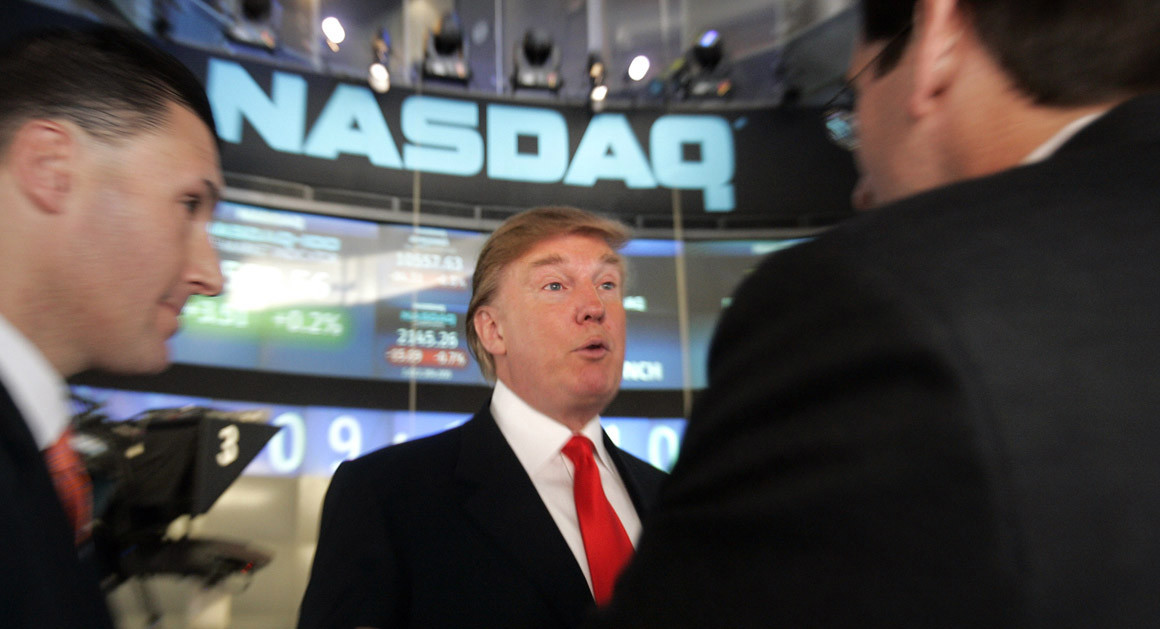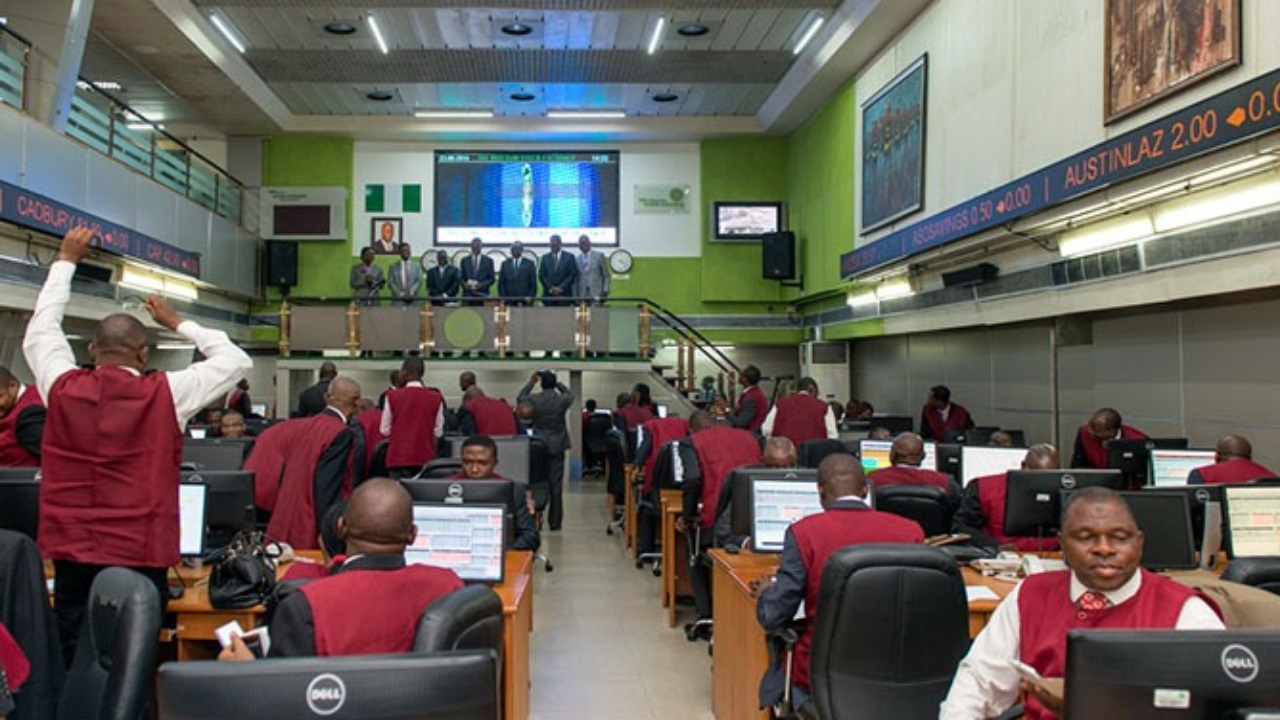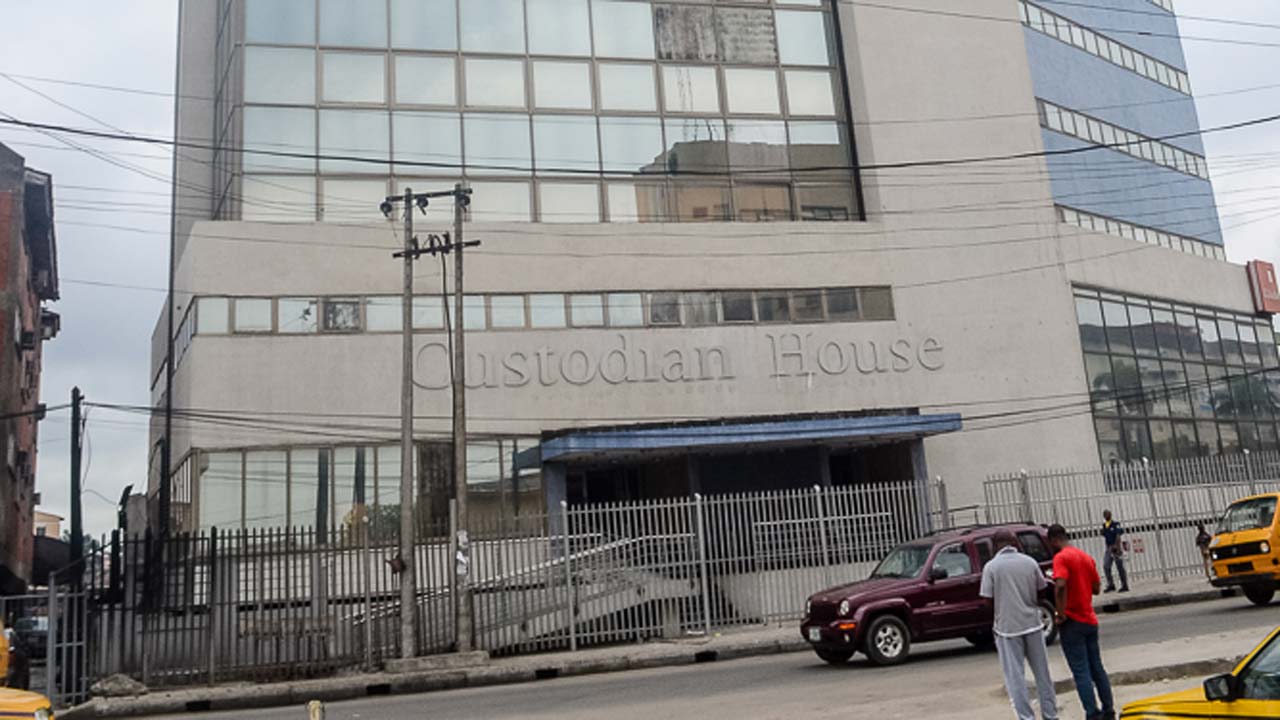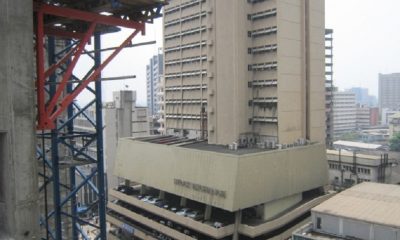Economy
Futures Climb Well Off Lows After Consumer Price Data

By Investors Hub
The major U.S. index futures have climbed well off their worst levels of the morning and are currently pointing to a roughly flat opening on Thursday.
The futures were pointing to a sharply lower open earlier in the day but rebounded as treasury yields tumbled following the release of the Labor Department?s report on consumer prices in the month of September.
The Labor Department report showed consumer prices inched up by less than expected in September, while the annual rate of consumer price growth slowed to 2.3 percent in September from 2.7 percent in August.
Treasury yields have moved notably lower following the release of the data, with the yield on the benchmark ten-year note sliding by 5.6 basis points to 3.169 percent.
The pullback by treasury yields may offset some of the recent concerns about the outlook for interest rates that contributed to the sell-off on Wednesday.
Stocks saw substantial weakness during trading on Wednesday following the mixed performances seen in the two previous sessions. The tech-heavy Nasdaq showed a particularly steep drop, falling to its lowest closing level in over three months.
The major averages saw further downside going into the close, ending the day just off their lows of the session. The Dow plunged 831.83 points or 3.2 percent to 25,598.74, the Nasdaq plummeted 315.97 points or 4.1 percent to 7,422.05 and the S&P 500 tumbled 94.66 points or 3.3 percent to 2,785.68.
Technology stocks helped to lead the way lower on Wall Street, with Netflix (NFLX), Amazon (AMZN), Apple (AAPL) and Facebook (FB) all posting significant losses on the day.
The sell-off came amid lingering concerns about the outlook for interest rates following a recent increase in treasury yields.
Treasury yields moved higher on the day following the release of a Labor Department report showing a rebound in producer prices in the month of September.
The Labor Department said its producer price index for final demand increased by 0.2 percent in September after edging down by 0.1 percent in August. Economists had expected prices to rise by 0.2 percent.
Excluding decreases in prices for food and energy, core producer prices still rose by 0.2 percent in September after slipping by 0.1 percent in August. The uptick in core prices also matched economist estimates.
The report also said the annual rate of producer price growth slowed to 2.6 percent in September from 2.8 percent in August, although the annual rate of core producer price growth accelerated to 2.5 percent from 2.3 percent.
In comments to reporters on Tuesday, President Donald Trump said he does not like the pace at which the Federal Reserve is raising interest rates.
“I like to see low interest rates,” Trump told reporters as he prepared to depart for a campaign rally in Iowa. “The Fed is doing what they think is necessary, but I don’t like what they’re doing.”
“I will say this: We’re normalizing money, and that’s good,” he added. “But I think we don’t have to go as fast.”
The comments from Trump come after the Fed raised interest rates by a quarter point to 2 to 2.25 percent last month, marking the third rate hike this year.
The Fed’s projections for future rates also pointed to one more increase in rates this year and three rate hikes next year.
Arguing that inflation has been held in check, Trump said he does not want to see Fed policy lead to a slowdown in recent economic growth.
CME Group’s FedWatch tool currently indicates an 81.4 percent chance the Fed will raise rates by another quarter point to 2.25 to 2.5 percent at its December meeting.
Energy stocks moved sharply lower over the course of the session, with a steep drop by the price of crude oil weighing on the sector.
Reflecting the weakness in the energy sector, the Philadelphia Oil Service Index plummeted by 5.6 percent, while the NYSE Arca Oil Index and the NYSE Arca Natural Gas Index both slumped by 3.8 percent.
Substantial weakness was also visible among semiconductor stocks, as reflected by the 4.5 percent plunge by the Philadelphia Semiconductor Index. The index fell to its lowest closing level in over five months.
Transportation stocks also saw significant weakness, dragging the Dow Jones Transportation Average down by 4.1 percent to a nearly three-month closing low.
Networking, retail, computer hardware, and biotechnology stocks also moved notably lower, reflecting broad based weakness on Wall Street.
Meanwhile, gold stocks were among the few groups to buck the downtrend amid an increase by the price of the precious metal.
Economy
Lokpobiri Begs Lawmakers to Reschedule Oil Revenue Executive Order Probe

By Adedapo Adesanya
A joint National Assembly probe into President Bola Tinubu’s new oil revenue executive order was stalled on Thursday following a request for more time by the Minister of Petroleum Resources, Mr Heineken Lokpobiri.
The hearing was convened to scrutinise the executive order directing that royalty oil, tax oil, profit oil, profit gas and other revenues due to the Federation under various petroleum contracts be paid directly into the Federation Account.
Mr Lokpobiri told lawmakers that although he attended out of respect for parliament, he had been notified of the hearing only a day earlier and had not obtained all the relevant documents needed to defend the policy adequately.
He appealed for the session to be rescheduled.
Co-chairman of the joint committee and Chairman of the Senate Committee on Gas, Mr Agom Jarigbe, put the request to a voice vote, and lawmakers approved the adjournment.
A new date is expected to be communicated to the minister.
The executive order signed last week also scrapped the 30 per cent Frontier Exploration Fund created under the Petroleum Industry Act (PIA) and discontinued the 30 per cent management fee on profit oil and profit gas previously retained by the Nigerian National Petroleum Company (NNPC) Limited.
Anchored on Sections 5 and 44(3) of the Constitution, the presidency said the directive was aimed at safeguarding oil and gas revenues, curbing excessive deductions and restoring the constitutional entitlements of federal, state and local governments to the
However, the order has sparked criticism within the industry, one of which was from the Petroleum and Natural Gas Senior Staff Association of Nigeria (PENGASSAN), whose president, Mr Festus Osifo, called for an immediate withdrawal of the order, warning that it could undermine the PIA and erode investor confidence.
Meanwhile, at another session, the Chairman of the Senate Committee on Finance, Senator Mohammed Sani Musa, disclosed that President Tinubu would soon transmit proposals to amend certain provisions of the PIA to align with current economic realities.
He noted that while many expect the executive order to boost revenue automatically, Nigeria has yet to achieve its desired income levels.
He did not specify which sections of the law would be targeted, but suggested that the drive to enhance revenue generation would necessitate legislative adjustments.
The PIA, signed into law in 2021 by the late ex-President Muhammadu Buhari, overhauled the governance, regulatory and fiscal framework of Nigeria’s oil and gas sector, commercialised the NNPC and restructured revenue-sharing arrangements.
Economy
NGX Group Declares N2 Final Dividend, 1-for-3 Bonus Issue for FY’25

By Aduragbemi Omiyale
Shareholders of Nigerian Exchange (NGX) Group Plc will receive one new share for every three held as of April 10, 2026, as a bonus, according to a proposal from the board.
This is in addition to a final dividend of N2.00 proposed by the board to shareholders for the 2025 fiscal year, which raised the total dividend for the year to N3.00, according to the financial statements of the company filed with NGX Limited.
Last year, NGX Group recorded a sterling performance, with its earnings growing by 36.0 per cent to N22.9 billion from N16.9 billion due to sustained growth across core business segments, improved customer penetration on the back of increased investor activity and rising investor confidence.
The operating profit in the year increased by 44.4 per cent to N11.8 billion, while pre-tax profit jumped to N15.6 billion from N13.6 billion in 2024, with the earnings per share (EPS) at N4.75.
As for its balance sheet, total assets increased to N71.0 billion from N68.0 billion, while shareholders’ equity strengthened to N55.2 billion
The improved debt-to-equity position reflects a conservative capital structure, enhanced solvency profile, and strong retained earnings growth.
“Our 2025 performance demonstrates the resilience of our business model and the effectiveness of disciplined strategic execution. Strong revenue growth, improved operating margins and a strengthened balance sheet reinforce our commitment to delivering sustainable long-term shareholder value.
“The increased dividend and bonus issue reflect the Board’s confidence in the sustainability of our earnings and the robustness of our capital position as we continue to deepen Nigeria’s capital markets.
“We are confident that the momentum that we have built in 2025 will be sustained, given investor confidence in the Nigerian capital market and a pipeline of exciting new listings that will broaden and deepen the market,” the chairman of NGX Group, Mr Umaru Kwairanga, said.
On his part, the chief executive of the organisation, Mr Temi Popoola, said, “We delivered strong top-line growth and enhanced profitability in 2025 despite macroeconomic headwinds.
“Our 36 per cent core revenue growth, improved operating efficiency and successful deleveraging have strengthened our capital base and financial flexibility, supporting the increased dividend and bonus issuance.
“As regulatory standards evolve, including the recent upward review of minimum capital requirements by the Securities and Exchange Commission (SEC), our robust balance sheet positions us to meet new thresholds seamlessly while continuing to invest in liquidity expansion, product innovation and market infrastructure to build a resilient, globally competitive exchange group.”
Economy
FG Targets Credit Access For 50% Workers By 2030

By Adedapo Adesanya
The Vice President, Mr Kashim Shettima, inaugurated the Board of the Nigerian Consumer Credit Corporation (CREDICORP) and gave a 50 per cent access target for workers, saying consumer credit was critical to Nigeria’s ambition of becoming a one-trillion-dollar economy by 2030.
According to him, President Bola Tinubu established the CREDICORP to build a trusted credit infrastructure, provide catalytic capital to lower borrowing costs, and help Nigerians overcome long-standing cultural resistance to credit.
Speaking on Thursday in Abuja when he inaugurated the board on behalf of the President, the Vice President, in a statement by his spokesman, Mr Stanley Nkwocha, said that the quality of life of Nigerians cannot improve without closing the gap between access to capital and human dignity.
“A civil servant who earns honestly does not have to chase sudden wealth just to buy a vehicle, or save for ten years to buy one. A young professional should not remain in darkness simply because solar power must be paid for all at once,” the Vice President said.
VP Shettima disclosed that in just one year of operations, CREDICORP has disbursed over ₦37 billion in consumer credit to more than 200,000 Nigerians, with over half of them accessing formal credit for the first time.
The Vice President said the organisation was specifically tasked with building credit infrastructure to bridge the trust gap between lenders and borrowers, providing wholesale capital and credit guarantees through its portfolio company.
“Ultimately, these critical jobs of CREDICORP will enable access to consumer credit to at least 50 per cent of working Nigerians by 2030,” he said.
The Vice President explained that the new board’s role was not ceremonial as they are custodians of the organisation’s mission, adding that the long-term strength of the institution would depend on their “vigilance, integrity, sacrifice, and commitment.”
He directed Board members to uphold Public Service Rules, the Board Charter, and all applicable governance frameworks, warning that accountability and stewardship of public resources were non-negotiable.
The Chairman of CREDICORP, Mr Aderemi Abdul, expressed appreciation to President Tinubu for his vision behind the formation of CREDICORP and for the confidence reposed in them, noting that the establishment of the corporation marked an important step towards strengthening the nation’s financial architecture.
He assured President Tinubu that the board understands its responsibility and will guide the institution to deliver meaningful benefits to Nigerians.
For his part, Mr Uzoma Nwagba, Managing Director/CEO of CREDICORP, recalled watching President Tinubu say 20 years ago that consumer credit is one of the major tools that will improve the lives of Nigerians.
He noted that over the past 18 months, the institution has benefited more than 200,000 Nigerians, including students.
He assured that the presidential vision behind CREDICORP would not be taken lightly, as the team considers their appointments a unique, once-in-a-lifetime opportunity.
Other members of the board inaugurated include Mrs Olanike Kolawole, Executive Director, Operations; Mrs Aisha Abdullahi, Executive Director, Credit and Portfolio Management; Mr Armstrong Ume-Takang (MD, MoFI), Representative of MoFI; Mrs Bisoye Coke-Odusote (DG, NIMC), Representative of NIMC; and Mr Mohammed Naziru Abbas, Representative of FMITI.
Others are Mr Marvin Nadah, Representative of FCCPC; Mrs Chinonyelum Ndidi, Representative of the Federal Ministry of Finance; Mr Mohammed Abbas Jega, Independent Director; and Mrs Toyin Adeniji, Independent Director.
-

 Feature/OPED6 years ago
Feature/OPED6 years agoDavos was Different this year
-
Travel/Tourism10 years ago
Lagos Seals Western Lodge Hotel In Ikorodu
-

 Showbiz3 years ago
Showbiz3 years agoEstranged Lover Releases Videos of Empress Njamah Bathing
-

 Banking8 years ago
Banking8 years agoSort Codes of GTBank Branches in Nigeria
-

 Economy3 years ago
Economy3 years agoSubsidy Removal: CNG at N130 Per Litre Cheaper Than Petrol—IPMAN
-

 Banking3 years ago
Banking3 years agoSort Codes of UBA Branches in Nigeria
-

 Banking3 years ago
Banking3 years agoFirst Bank Announces Planned Downtime
-

 Sports3 years ago
Sports3 years agoHighest Paid Nigerian Footballer – How Much Do Nigerian Footballers Earn




















